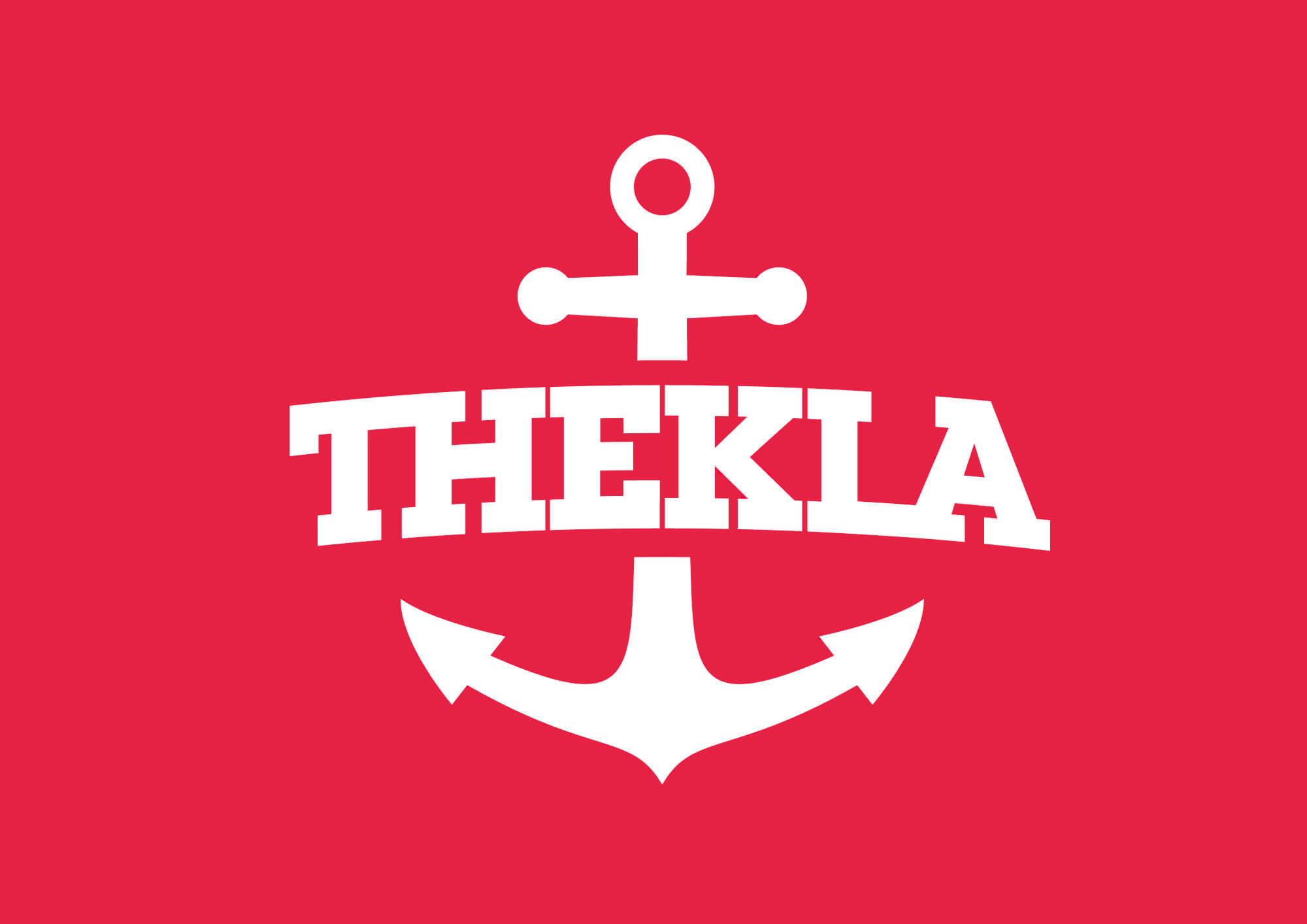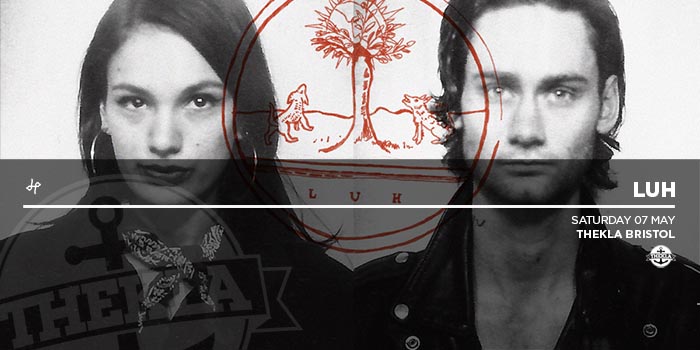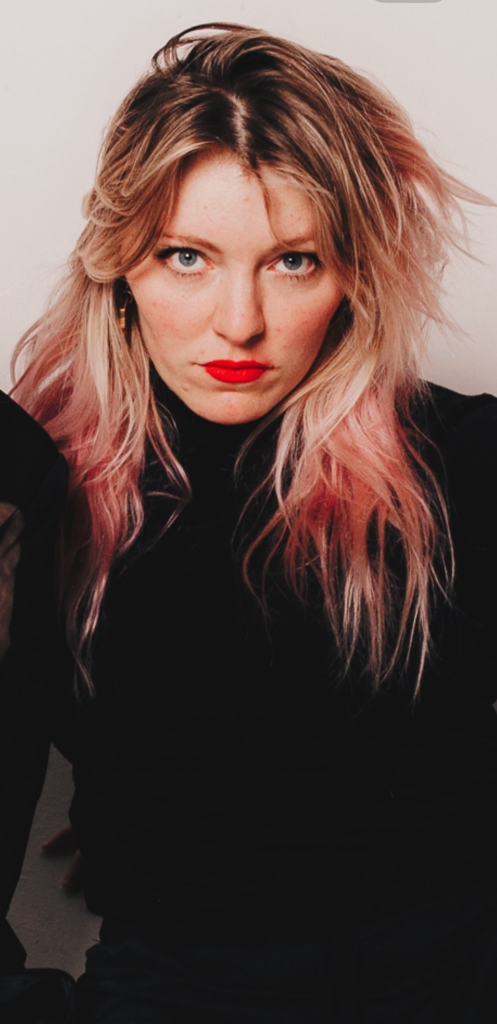LUH
www.luh.xxx
For as long as there have been lovers, lovers have serenaded each other. And for as long as there have been Gods, mortals have serenaded them, too.
In that sense, LUH’s debut Spiritual Songs For Lovers To Sing is familiar, but as a whole – an album, a band, and a concept – it’s something totally fresh; a record built on ideas not influences, and it is as powerful and passionate as anything you’ll hear this year.
LUH is Ellery Roberts and Ebony Hoorn, the lovers of the title. Ellery’s name might be familiar as the frontman of WU LYF, the incendiary Manchester four-piece whose rhetoric, imagery and solitary album described a new model for the untamed fury of youth.
Ebony and Ellery met in the band’s dying days in 2013. Ellery returned to Manchester from touring and met Ebony (visiting from Amsterdam) in the derelict squat that a group of Manchester based musicians shared. They made an instant connection, “We’re both lone wolf characters who don’t often find much joy other people, but we found something we enjoy in each other,” says Ebony.
Both are artists in their own respective fields – Ebony is a recent graduate of the audio-visual department in Amsterdam’s prestigious Rietveld Academy – and the two quickly found themselves in constant contact over the internet, sharing dreams and inspiration. Eventually Ellery left his refuge in London to make a life with Ebony in Amsterdam, and they were able to focus on a shared life project in totality.
“It’s interesting living and creating together,” says Ellery. “Fundamentally we had this instantaneous feeling that we wanted to do this together, to explore life together. And music for me is an instinctual way to explore, document life.”
It was a tonic for Ellery, who was struggling with the notion of being the frontman of a band, a train of thought that led him to split the group. “When something becomes the performance of realness, the performance of passion rather than the actual emotion, you may as well be selling soap,” he says. “But relationships are intense things, you know. Enough to get your blood boiling or singing. That realness gives an intensity to it.”
The pair’s crucible bubbles over. “We have a real shared interest in discovering all this world has to offer,” says Ellery. “Ebony’s really amazing at finding really new and interesting things – music, film, culture, she just has that ability to unearth them.”
Discussing the project, they talk about the potentiality of post-humanist singularity and the collapse of capitalism. They cite as inspirations not just fellow musicians, but big thinkers like Buckminster Fuller, proponent of the geodesic dome and inventor of the Dymaxion Map. “Ideas that are now, more than ever, potent for implication” says Ebony.
It’s something that tallies with the aim of LUH – to unite listeners, to take people on a journey with them. “Culture now is people embracing and taking on a thousand identities, tastes, everything,” says Ellery. “I really feel in the world we’re living at the moment, there’s a big us and a little them. The universality of life experience is dissolving all those boundaries. It’s just the experience of life, you know.”
One book, or one story, seemed to strike a chord for the pair, describing their experience of meeting and creating as well as pointing towards a structure for the album: Joseph’s Campbell’s Hero With A Thousand Faces, which pinpoints the reoccurrence of a timeless myth throughout human culture and, to an extent, can be found in each of our lives. “Everyone’s got a choice whether they want to be the hero in their life or the person on the side watching,” says Ellery. “I guess meeting Ebony in that moment was a moment of realisation that if I wanted to do what I want to do with my life, I had to get on and do it.”
The hero myth – epiphany and power and triumph over adversity – informed the narrative of the album, a looping song cycle based around movement from impulse to experience and glimpses of enlightenment. “The record comes from a really alienated and materialist perspective that then reaches breaking point with the song $ORO. After that it rebuilds towards self-realisation, taking responsibility for your life and what you do with it,” explains Ellery. “Maybe you hit 12 o’clock and you’re in not in too dissimilar place to where you started, but the experience has progressed you somewhere in your mind or your understanding.”
In that sense, the first and last tracks, the anthemic I&I and the semi-acoustic The Great Longing, are companion pieces, designed to guide the listener back to the start. “The beginning and end of the cycle is the record looping perfectly,” says Ellery. “It can just go round and round.” The former references esoteric symbolism, “a notion of a oneness caught with a dualistic separation.” The power and grandeurs of the great mystery are flirted with, yet one dogmatic message isn’t overtly subscribed to. “Everything that’s symbolic is presenting a truth. Religion based on certain perceptions of truth has been a system of authoritarian power for thousands of years,” explains Ellery. “I don’t think the teachings of the world religions are invalid, but the bureaucratic organisation of them has made them about control and power.”
Another influence on this album – musical this time – is Marvin Gaye’s What’s Going On. ” I really loved the idea of What’s Going On as a blueprint for an album, what it communicated, questioned. It was through reading about it I came across this notion of it being a song cycle, and it all seemed to fit together with the cycle of a hero and all the different stations and movements you go through,” says Ellery. “It worked as a template for making a body of work, a record – and I think if you’re making a record, you have to make a considered work from start to finish, not a bunch of songs that someone can stream.”
Invoking all of the above is music that taps straight into something primal and forceful; Ellery’s raw, distinctive voice, untamed since his teenage days in WU LYF, is counterbalanced by Ebony’s cool restraint. Meanwhile, the instrumentation ranges from lush grandeur to jarring Auto-Tune – the latter most notably on the cataclysmic
$ORO. “That song is a piece of shadow play, losing your common respect for humanity and your empathy towards others and living in this binary way, post-human. Auto-Tune on the vocals reflected that,” says Ellery. Says Ebony: “It wasn’t necessarily a self-conscious stylisation, we didn’t say ‘let’s make zeitgeist contemporary pop music’. We’re reflecting the times we are living in currently, things that are mirroring culture.”
The two made the album in isolation between Amsterdam and Manchester, recording on Ableton. “It got to the point where it needed the ears of a producer,” says Ellery. “We wanted to make something really bombastic. We didn’t want something scuzzy and lo-fi – it had to be a blockbuster, so we needed somebody who could facilitate that.”
Enlisting the British composer Bobby Krlic – known for his work under the pseudonym The Haxan Cloak – on production, LUH settled upon the idea of recording on the Island of Osea, a sparsely habited piece of marshland accessible only twice a day upon a decrepit Victorian causeway. “We wanted to go somewhere where we could just disappear and not have any outside input,” says Ellery. “It was May, the sun was showing first light, the blossom was out and it quickly satisfied my idea of utopia – people [including engineer Ray Tovey] living a collective life, cooking for each other, working together. We were able to work 24/7 and allow the songs to open up and grow, take on new life.”
So far, little is known publicly about the group except from the package they released via BitTorrent that included the track Lost Under Heaven. It was their appropriation, they say, of a Fluxus-style artefact for the modern age. A box to make you think. The album – due in spring – is complete, and the creative synapses are still firing. Ebony and Ellery are working on the live interpretation of the songs; something that they say over time will incorporate elements of immersive theatre and experiential art. “At the moment, the initial workings of LUH are quite conventional – it’s a band with a record on a label – but it’s a functional necessity to get moving and develop with that support. Over the years we will follow this impulse to develop something we don’t quite have a word for yet,” says Ellery.
They’re looking forward to taking LUH out onto the world stage, and feel confident about where it’s headed, avoiding pitfalls of the past. “WU LYF was very romantic and a big part of it was just growing up and seeing the way that the world goes around and functions in very exploitative ways. You’re like, I feel horrible about this, but this is just what we do. I am complicit. A big thing with LUH is just understanding that side of the world and working out a way to live that we feel comfortable with. LUH becomes a process of mutual learning with me and Ebony and anyone who comes on the ride with us. It’s inspired by developing ways to do things differently and progressively to live a better, more abundant life.”
SATURDAY 07 MAY
THEKLA BRISTOL
The Grove, Bristol BS1 4RB
Doors 7:00pm
Ages 14+
Advance tickets available from:
www.alt-tickets.co.uk
www.gigantic.com
www.bristolticketshop.co.uk





